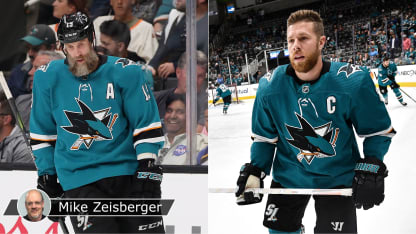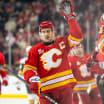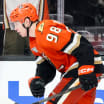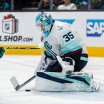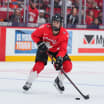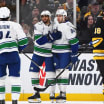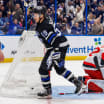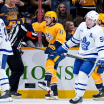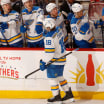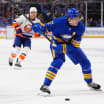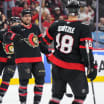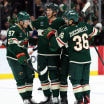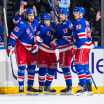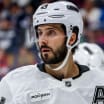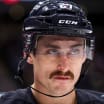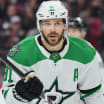Thornton spent each of the past two offseasons working his way back from knee injuries. He tore the ACL and MCL in his left knee in 2017 and tore the MCL in his right knee in 2018.
Thornton ranks eighth in NHL history with 1,065 assists and 14th with 1,478 points in 1,566 games. He had had 10 points (four goals, six assists) in 19 Stanley Cup Playoff games and has 133 points (31 goals, 102 assists) in 179 career postseason games.
DeBoer was less committal about the chances of veteran forward
Patrick Marleau
, also an unrestricted free agent, rejoining the Sharks.
"I think he has something left in the tank but that's a situation that is in Doug's hands right now," DeBoer said, referring to Sharks general manager Doug Wilson.
Thornton and Marleau were the faces of the Sharks from Nov. 30, 2005, when Thornton was acquired in a trade with the Boston Bruins, until July 2, 2016, when Marleau signed a three-year contract with the Toronto Maple Leafs. Marleau was traded to the Carolina Hurricanes along with a conditional first-round pick and a seventh-round pick in the 2020 NHL Draft by the Maple Leafs for a sixth-round pick in the 2020 Draft on June 22 and five days later had the final season of his contract bought out by the Hurricanes.
One player who definitely won't be back is former captain Joe Pavelski, who signed a three-year contract with the Dallas Stars on July 1. Replacing Pavelski's 64 points (38 goals, 26 assists) was one of the topics DeBoer addressed in a wide-ranging discussion.
How difficult was it for you and general manager Doug Wilson to see Pavelski, the Sharks captain the past four seasons and one of the backbones of the team, leave as a free agent?
"It was a business decision. That's the tough part of Doug's job. He has to make those decisions. In a coach's mind you don't have to factor in money and (NHL salary) cap and people who need to be signed a year or two down the road and where the cap's going. We think with our hearts. In our mind a guy like that is irreplaceable. But the fact is, Doug did what he has to do. The big thing is, Pav (Pavelski) understood and Doug understood. How much of a loss it'll be to our group will be determined, but it's a huge void to fill."
